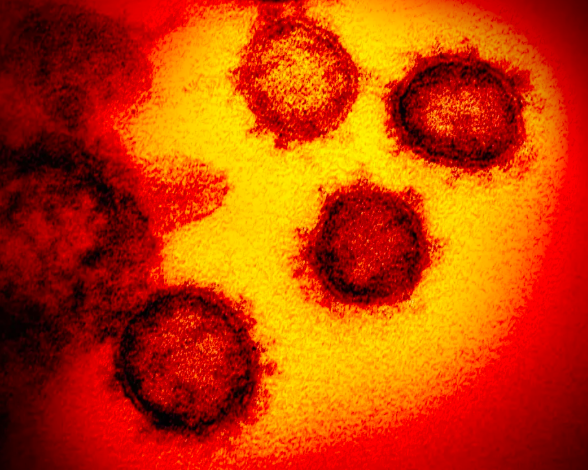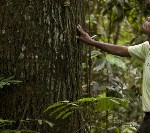In 2009, the whole world celebrated the 200th anniversary of the birth of Charles Darwin, and the 150th anniversary of the publication of the first edition of his most famous work:The Origin of Species. However, few people in Brazil are familiar with the history of a debate in which Darwin was directly involved: that of the moral legitimacy of the use of live animals in experiments, known as vivisection. This practice has been employed since antiquity, and today vivisection is the subject of intense debate, both by activists and a significant percentage of the academic community, part of the “animal ethics” or “bioethics” field. The article “Pain Beyond the Confines of Man: A Preliminary Introduction to the Debate Between Frances Power Cobbe and the Darwinists with Respect to Vivisection in Victorian England,” by André Luis de Lima Carvalho and Ricardo Waizbort, published in v. 17 n. 3 (July-Sept 2010) of História, Ciências, Saúde Manguinhos, shows that this debate was especially heated in Victorian England. Since the publication of The Origin of Species, the way in which we view our relationship with (other) animals has altered in important ways, and these changes include the ethical implications of this relationship. These implications placed Darwin on a collision path with a person virtually unknown to the Brazilian academic community, Mrs. Frances Power Cobbe, a journalist, feminist and activist for multiple social causes.
The article is based on the doctoral research of André Luis de Lima Carvalho, in the History of the Sciences and of Health graduate program, Casa de Oswaldo Cruz, Oswaldo Cruz Foundation (COC/Fiocruz) under Prof. Ricardo Waizbort. The dissertation was supported by a grant from the institution itself and by a grant from CAPES, which paid for study abroad to access historical sources in English libraries. The article begins with the publication, in 1875, of a letter by the English physician Dr. George Hoggan in a London newspaper, denouncing the horrors he witnessed in a physiology laboratory in France. According to Dr. Hoggan, the dogs used in the experiments, “sniffing the air in the laboratory, appeared to be horrified, as if they knew what their lot would soon be, and made vain friendly advances towards the researchers present, who reacted with indifference or even cruelty to the advances.” One of the readers who reacted with indignation was Frances Power Cobbe who, together with the English physician, created an association to combat vivisection. Until then a friend of Charles Darwin, with whom she shared a profitable exchange of theoretical discussions and personal impressions on the animal mindespecially that of dogsMrs. Cobbe, by fighting against animal experimentation, became an adversary of the evolutionist and the Darwinist research program.
The authors discuss the motives that might have led to the estrangement of Darwin and Cobbe, and construct a historical narrative that includes the emergence of Darwin’s theory of evolution; the expansion of experimental physiology in Great Britain; the advent of anesthetics in the Western world; the growing increase of denunciations of abuse committed against animals by English scientists; and also the Royal Commission’s investigation and law proposals resulting in specific legislation to regulate animal experiments in Victorian England. Darwin’s increasing involvement with the subject and his political support for vivisection due to an agenda in common with British physiologists, that of the expansion of science in Great Britain, was compared by Carvalho and Waizbort to the progressive change in Cobbe’s position on the status of science in the civilizing project. “Creating and mobilizing an increasingly large, complex and powerful network of allies, Frances Cobbe became one of the most visible, active and detested adversaries of experimental physiologists, which earned her many political enemies.” Among the most important was Charles Darwin.
The heart of this debate, according to the authors, was the fact that Darwinism itself elevated animals to the level of feeling beings, since in the view of Darwin animals and humans shared the same biological origin, and therefore had similar physical and emotional responses. There was thus a paradox: “it was the similarities in their biological systems and functions that made animal bodies useful for studies of human physiology, and at the same time these same similarities indicated that animals were able to feel many sensations similar to those felt by humans, especially pain.” The article explores Darwin’s concern with the unnecessary suffering inflicted on animals and his unease in relation to the idea of vivisection. However, as a proponent of science, Darwin’s position in defense of the legitimization of animal experiments was firm and unequivocal, which had the effect of increasing the animosity between the evolutionist and Cobbe, for whom Darwinism came to represent, in her discourse, the “scientific spirit of the age.” Cobbe attributed most of the errors in the national civilizing project to this “scientific spirit,” and for this reason the authors concluded that “more than just political agendas, this disagreement was also based on values, worldviews and the frontiers of scientific ethics and human actions.”










